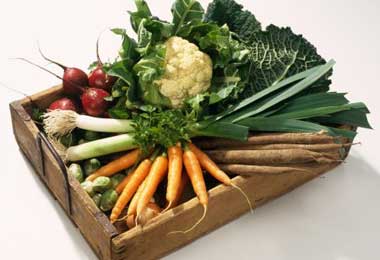Ten ways to help save the planet

1 Use cloth nappies
Modern reusable nappies are cheaper and more hygienic than disposables. Cloth nappies allow your baby's skin to breathe, contain fewer chemicals and reduce landfill waste. They are easy to machine wash, or you can use a nappy laundry service. For more information: www.realnappycampaign.com; www.thenappylady.co.uk; Women's Environmental Network, www.wen.org.uk, 020-7481 9004.
2 Put your waste in a worm composter
Nearly 60 per cent of household waste is biodegradable. This wooden worm composter has a perspex window so you can see what's going on. It's clean and safe for both indoor and outdoor use and its contents will enrich your garden. It also reduces waste disposal damage such as landfill gas, transport emissions and congestion. For details: www.recycleworks.co.uk, 01254 820088.
3 Try a box scheme
Box schemes are a great alternative to supermarket shopping, as fresh fruit and veg, groceries and cleaning products are delivered to your door. They ensure suppliers get a fairer deal and help the local economy. They also reduce the waste from packaging and the CO2 emissions from transporting goods long distances. For a list of box schemes in your area visit www.ecologist.org.
4 Buy organic wine
Organic wine is becoming more and more available as its popularity increases. Of course, buying organic helps reduce pesticide use. Try Vintage Roots or Vinceremos who also produce an "ecologist" trade sampler that you could encourage your favourite bars and restaurants to try. Visit www.vinceremos.co.uk, 0800 107 3086; www.vintageroots.co.uk, 0800 980 4992.
5 Seek out organic cotton clothing
Cotton makes up 50 per cent of our textile use and its production requires enormous amounts of hazardous pesticides and wasted water. To help reduce this damage, buy organic cotton clothes, and lobby your favourite shops to stock them - the fashion industry responds well to trends. Visit www.greenfibres.com; www.ciel.ltd.uk to find out more.
6 Walk to work
Cut down on fuel emissions by taking public transport whenever possible. If you have to go by car, don't travel alone and try to join a car-sharing scheme. On shorter trips, walk or cycle - this will also help you stay fit. Visit www.liftshare.org; www.scootelectric.co.uk; www.sustrans.org.uk; www.nationalcarshare.co.uk for details.
7 Read the label
The ingredients listed on many packaged foods makes for alarming reading. Producers often market ready-made foods, such as sauces, as being similar to home-cooked, but don't be fooled. You won't see recipe books listing preservatives, antioxidants and artificial flavourings. Visit www.goodnessdirect.co.uk; wwwgraigfarm.co.uk.
8 Clean green
Ordinary household cleaning products can cause dangerous environmental pollution, as well as encouraging superbugs and allergies. Switch to ecological products, such as the Ecover range, try out Eco-balls in your washing machine and use low-toxicity products such as Borax. Visit www.greenshop.co.uk.
9 Turn off the tap
With all this talk about a drought, and leakages causing loss of water throughout the country, saving water is a priority. Take showers instead of baths, don't leave the tap running when you clean your teeth, don't overfill the kettle and fit a water-saving device to the loo. Preserve the supply or it could be standpipes this summer.
10 Switch to Ecotricity
Ecotricity generates its own exclusively green power and invests your monthly payments to build wind turbines. With its price promise to match your regional supplier's rates, switching won't cost you more. Plus, you'll receive a free subscription to Ecologist when you switch. Visit www.ecotricity.co.uk, 0800 032 6100.
Join our commenting forum
Join thought-provoking conversations, follow other Independent readers and see their replies
Comments
Bookmark popover
Removed from bookmarks